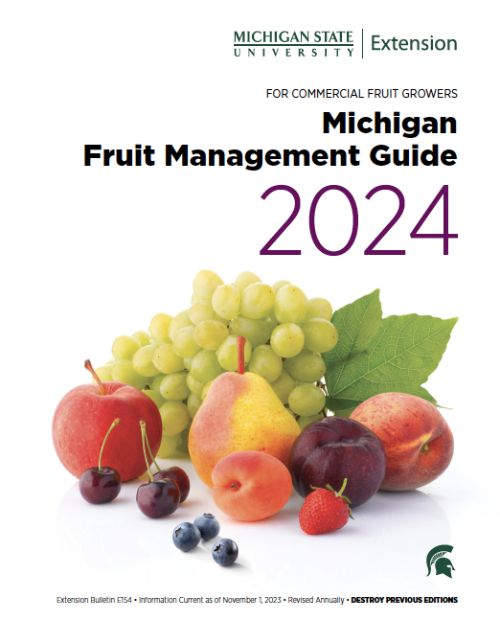Apr 14, 2024Michigan fruit management guide updated
The Michigan Fruit Management Guide, which includes coverage of strawberries, has been released by Michigan State University (MSU) Extension.
This year’s version of the Michigan Fruit Management Guide has been released by Michigan State University (MSU) Extension.
The Michigan Fruit Management Guide (E0154) from MSU Extension has long served to assist fruit growers with selecting pesticides and other pest management tools as they plan for the growing season.


The guide provides a summary of the relative performance of certain pesticides and management tactics for specific pests of Michigan fruit crops. Recommendations are based primarily on research data gathered by MSU scientists over many years.
The ratings can help growers determine which materials to use and when for managing key pests of fruit crops including insects, mites, nematodes, plant pathogens and weeds. When coupled with an awareness of farm-specific conditions such as pest/disease pressure, crop stage and environmental conditions, the guide can be an excellent companion for making informed integrated pest management decisions, according to a news release.
The publication covers a variety of fruits, including apples, pears, peaches, nectarines, grapes, cherries and blueberries and strawberries.
Purchase the downloadable PDF here.
Purchase the printed guide here.
MSU recommends previous editions be destroyed, as they may contain out of date information on pesticide registrations, etc.
Additionally, the resource does not supersede label directions. The label is always the law, according to a news release.
For more information, visit here.















